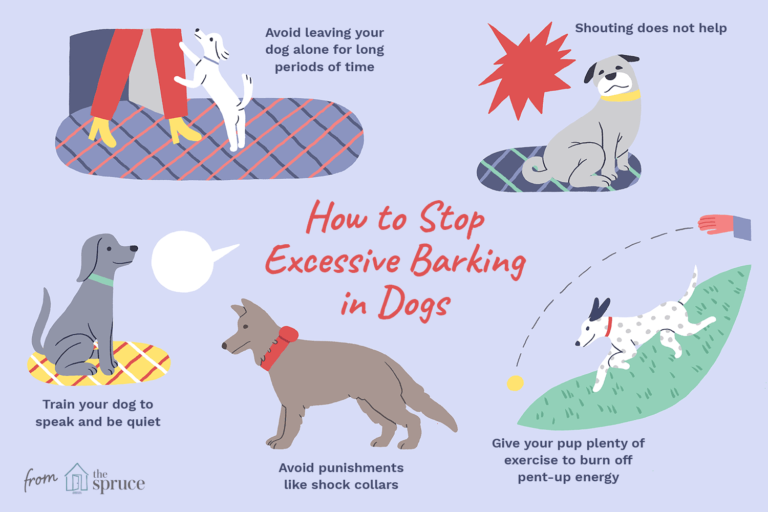Having issues with a constantly barking dog in your neighborhood?
Are you having issues with a barking dog in your neighborhood? If the dog is barking excessively, it may be considered a nuisance.
The owner may not even be aware that the dog is barking.
You can try to resolve the issue by talking to the neighbor or the dog owner.
If the problem persists, you may need to contact animal control for a citation.
Reporting a barking dog
If you have a neighbor whose dog is barking excessively, you may want to report the issue to your local council.
The owner may be issued a noise complaint if the barking becomes excessive and does not resolve the issue.
The dog owner should be aware of the bark and its potential to disturb the neighbor.
The dog owner should take action to mitigate the bark, for example, by keeping the dog inside during certain times of day or using a training collar.
If a neighbor complains, the dog owner should be apologetic and try to work out a solution.
Communicating With The Dog Owner:
Assuming you are trying to communicate with a dog owner about their dog’s barking, here are a few tips.
First, approach the conversation in a friendly way. It may be helpful to start by asking if they are aware of their dog’s barking and if there is anything they can do about it.
If the owner is receptive, try suggesting a few possible solutions, such as keeping the dog indoors more often or using a collar that emits a sound when the dog barks.
Animal Noise Complaint Process
When a county animal receives a noise complaint, they will ask the person making the complaint to fill out an affidavit.
This document may ask for the person’s contact information, as well as specifics about the problem noise, such as when and where it occurred.
After receiving the affidavit, the county animal may issue a warning to the pet owner.
If the noise complaint persists, an animal cruelty citation may be issued, and animal control may take further action.
Requesting Mediation with The Dog Owner:
If you have received a citation for your dog, you may be able to request mediation.
This process allows you and the neighbor to meet with a mediator to discuss the incident and try to come to an agreement.
If you are able to reach an agreement, the citation may be dismissed.
Other animal nuisance complaints may include animals that are attacking people or other animals, animals that are being kept in unsanitary conditions, or animals that are creating a public health hazard.
What is NUISANCE defined as:
Nuisance is defined as a persistent and annoying problem that causes unpleasantness or inconvenience. In most cases, nuisances are classified as either public or private.
Public nuisances are those that affect the health, safety, or welfare of the general public, while private nuisances are those that affect only an individual or a small group of people.
Common examples of public nuisances include excessive noise (such as from loud music), pollution (such as from a factory), and unsightly property conditions (such as overgrown weeds).
Private nuisances can include things like incessant barking from a neighbor’s dog.
If you are being affected by a nuisance, you can file a complaint form with your local authorities.
In the case of excessive barking, your neighbor will likely be asked to keep their dog quiet.
If they fail to do so, they may be subject to fines or other penalties.
Preliminary Nuisance Complaint Form
A preliminary nuisance complaint form may be used to resolve an issue with a barking dog. The form should include the date and time of the incident, as well as the county animal services that will be handling the complaint. The form may also be used to resolve other issues with animals, such as noise complaints.
Process to Declare a Dog a Public Nuisance
1. Receive a complaint about a dog from a member of the public.
2. Investigate the complaint to determine if there is evidence that the dog is a public nuisance.
3. If there is evidence that the dog is a public nuisance, notify the owner of the dog in writing of the complaint and give them an opportunity to address the issue.
4. If the owner does not take action to address the issue, or if the problem persists after they have taken action, hold a hearing to determine whether or not the dog should be declared a public nuisance.
5. If the dog is declared a public nuisance, impose appropriate penalties on the owner, which may include requiring them to keep the dog under control, pay fines, or have the dog euthanized.
Do you have a dog that barks?
Do you have a dog that barks excessively? This may be a sign that something is wrong, such as separation anxiety. Dogs bark for many reasons, so it’s important to pay attention to why your dog is barking. If excessive barking is a new behavior, it could be caused by something as simple as a change in routine. Dogs can also bark when they’re bored, anxious, or excited. If your dog’s excessive barking is a persistent problem, you may need to consult with a veterinarian or behaviorist to find a solution.
My dog has started barking a lot more than usual
My dog has started barking a lot more than usual. It’s hard to pinpoint the exact reason why, but it could be due to a health issue. If your dog is barking excessively, it’s best to consult with a veterinarian to rule out any potential health problems. Excessive barking can also be a sign of anxiety or frustration, so be sure to provide your dog with plenty of opportunities to exercise and socialize.
My dog barks when left alone
My dog barks when left alone. I think she’s just bored and lonely when she’s home by herself, so she vocalizes her displeasure. I try to leave her with some chew toys and things to keep her occupied, but sometimes she just can’t help it and she barked. It’s not too loud or anything, but it is annoying after a while.
How to reduce excessive barking
Dogs bark for many reasons, including boredom, fear, anxiety, and hunger. Excessive barking can be annoying and disruptive, but there are ways to help reduce it. Try giving your dog more exercise, attention, and mental stimulation. If your dog is barking for attention, provide positive reinforcement when he or she is quiet. If your dog is barking out of fear or anxiety, work with a certified animal behaviorist or trainer to help him or her feel more comfortable.
Here are some helpful barking dog tips:
-If your dog is barking excessively, try to figure out what is causing the barking and address the underlying issue.
-If your dog is barking due to boredom or anxiety, provide them with more exercise or mental stimulation.
-If your dog is barking out of excitement or fear, provide positive reinforcement when they stop barking.
-Try using a citronella collar or other type of anti-barking device if excessive barking continues to be a problem.
Can you complain about constant dog barking
If you live in an apartment or a condo, chances are you’ve had to deal with a noisy neighbor at some point.
Maybe it’s a party that goes on all night, or someone who blasts music during the day.
But one of the most common complaints is about dog barking.
It can be annoying to hear a dog barking all the time, especially if you have your own pet and know how annoying it can be.
If the dog is right outside your window, it can be even more frustrating.
There are a few things you can do if you’re being bothered by a noisy dog.
You can try to talk to the owner and see if they’re willing to do something about it.
If that doesn’t work, you can call your landlord or the police and make a complaint.
Hopefully, if you take action, you’ll be able to get the dog to stop barking and enjoy some peace and quiet.
can you complain about a dog barking all night
Yes, you can complain about a dog barking all night. It can be very disruptive to your sleep and your peace of mind.
If the dog is inside, You can try to talk to the owners about it and see if they can do something to stop the dog from barking at night.
If the dog is outside, you can call the police or animal control to see if they can help resolve the issue.
Do you want a well-behaved dog but don’t know where to begin?
Training a dog is simple, but it does take time and consistency.
Keep in mind that like people, some dogs learn faster than others.
If you find that your dog is picky about following your commands, don’t give up,
keep practicing in short intervals (a few minutes at a time) and you will see results.
One of the first things you will want to teach your new pup or older dog is to sit.
This command helps get your dog’s full attention so you will be able to deliver all instructions with ease.
Sit at eye level with your pet and hold a treat in front of his nose.
In the beginning steps keep this treat close to his head and bring it back slightly over his head rather than down below him (this may cause him to jump).
Ideally he should be sitting on all fours when he receives the treat. If not, reel him back gently with an easy tug on the collar as you repeat “sit” while continuing to move the treat up slightly behind his head until he sits down entirely.
You can also place your open palm above his nose as another signal for this command which helps show him what behavior he has been rewarded for displaying; since most dogs are
My Neighbor’s Dog Makes Too Much Noise. What Can I Do About It?
My neighbor’s dog has been making a lot of noise lately and it’s starting to bother me. What can I do about it?
The best way to resolve the problem is to talk to your neighbor about it. Let them know that the dog’s noise is bothering you and see if they are willing to do something about it. If they are not willing to work with you to solve the problem, you may need to contact your local animal control office. Be sure to have a citation from the noise ordinance in your area and include the date and time of the incident.







